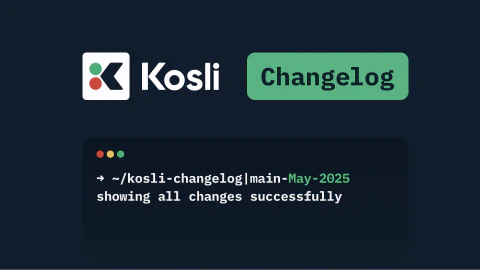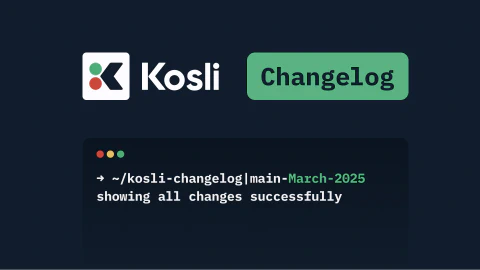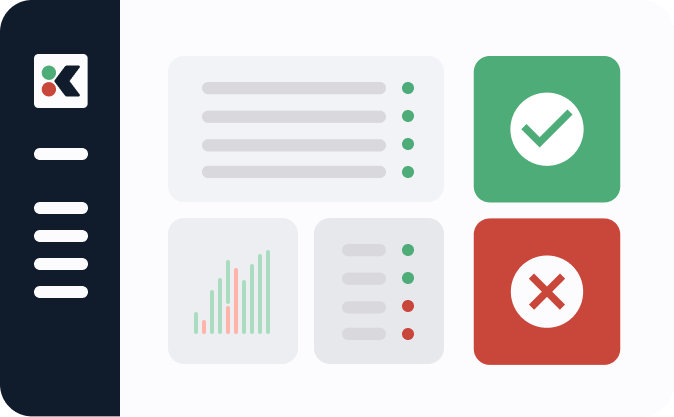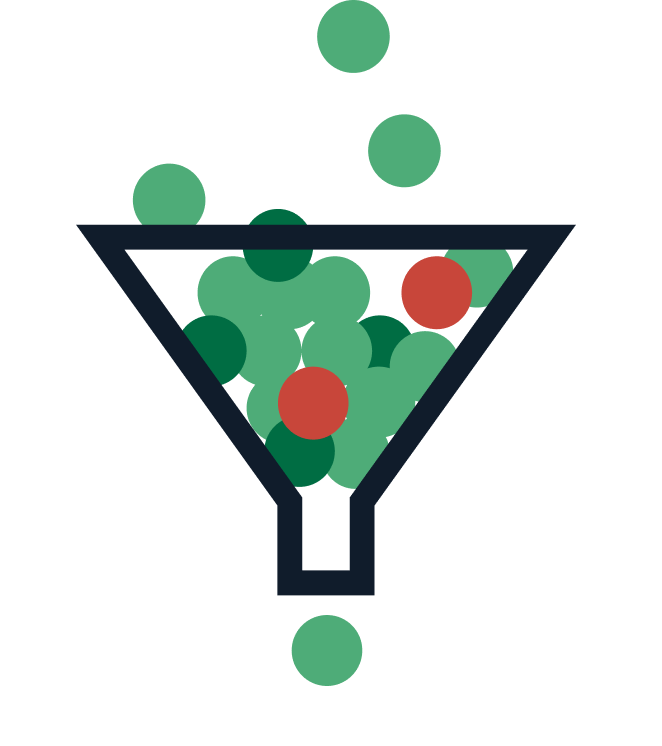The Kosli team starts the new year with endless energy and some exciting news for you! This month, we’ve delivered not only bug fixes and performance improvements but also a couple of highly requested features. More details about them are provided further in the post.
Rename flows and environments
Long awaited feature to rename flows and environments is now available in CLI v2.7.3 and later, and also in the API.
The Kosli CLI command to rename a flow is simply
kosli rename flow <OLD-FLOW-NAME> <NEW-FLOW-NAME> \
--org <ORGANIZATION-NAME> \
--api-token <API-TOKEN>
And the equivalent command to rename an environment is
kosli rename environment <OLD-ENVIRONMENT-NAME> <NEW-ENVIRONMENT-NAME> \
--org <ORGANIZATION-NAME> \`
--api-token <API-TOKEN>`
The renamed flow or environment will adopt its new name, yet it will remain accessible by its previous name, ensuring continuity for reporting and URLs. It will retain accessibility under its former name unless another flow or environment has been assigned the same name.
Archive flows and environments
Another highly requested feature is to enable archiving of flows and environments. It is now available in the CLI v2.7.5 and later, and also in the API.
The Kosli CLI command to archive a flow is simply
kosli archive flow <FLOW-NAME> \
--org <ORGANIZATION-NAME> \
--api-token <API-TOKEN>
And the equivalent command to archive an environment is
kosli archive environment <ENVIRONMENT-NAME> \
--org <ORGANIZATION-NAME> \
--api-token <API-TOKEN>
The archived flow or environment will no longer be visible or accessible by its previous name; however, the data remains in the database. If an environment references an artifact within an archived flow, the link to that flow and artifact will still work but under the format “FLOW-NAME-archived-at-1706000000”. The same is true for archived environments.
Flow names now support ‘.’ character
We have relaxed the restrictions on the characters allowed in flow names, removing the limitation that previously disallowed dots in flow names. Flow names can now include alphanumeric characters, dashes (’-’), and dots (’.’).
Change of behavior in pull-request reporting command in CLI
In CLI versions prior to v2.7.0, pull-request reporting commands exited with a non-zero code without sending data to the Kosli server when the --assert flag was provided and no pull requests were found for a specified commit. This issue has been addressed. Starting from CLI v2.7.0 and beyond, pull-request reporting commands first report results regarding missing pull requests to the Kosli server before exiting with a non-zero code.
Notifications have been renamed to Actions
Notifications have been rebranded as Actions! While the functionality remains unchanged, we’ve selected “Actions” as a more suitable name. To learn more about Kosli Actions and their utilization, check out this blog post!

Support Okta for Enterprise SSO
For our enterprise customers utilizing Single Sign-On (SSO), we now offer support for Okta alongside Azure and Google.
Support for Azure environments
The Kosli CLI v2.7.5 and later versions now offer support for Azure environments. However, there are a couple of current limitations. At the moment, Kosli only snapshots Azure Web Apps and Azure Function Apps within a resource group. These apps must be Docker container-based; otherwise, they are excluded from the snapshot. For further details on the command, refer to the documentation provided here.
The Kosli CLI command to snapshot Azure environment is
kosli snapshot azure <ENVIRONMENT-NAME> \
--azure-client-id <AZURE-CLIENT-ID> \
--azure-client-secret <AZURE-CLIENT-SECRET> \
--azure-tenant-id <AZURE-TENANT-ID> \
--azure-subscription-id <AZURE-SUBSCRIPTION-ID> \
--azure-resource-group-name <AZURE-RESOURCE-GROUP-NAME> \
--org <ORGANIZATION-NAME> \
--api-token <API-TOKEN>
And with this, we wrap up our January 2024 Changelog. We are always open to user feedback and if you have any questions or suggestions, feel free to join our Slack community. Maybe your proposal would be in the next changelog 😉

















